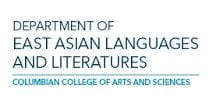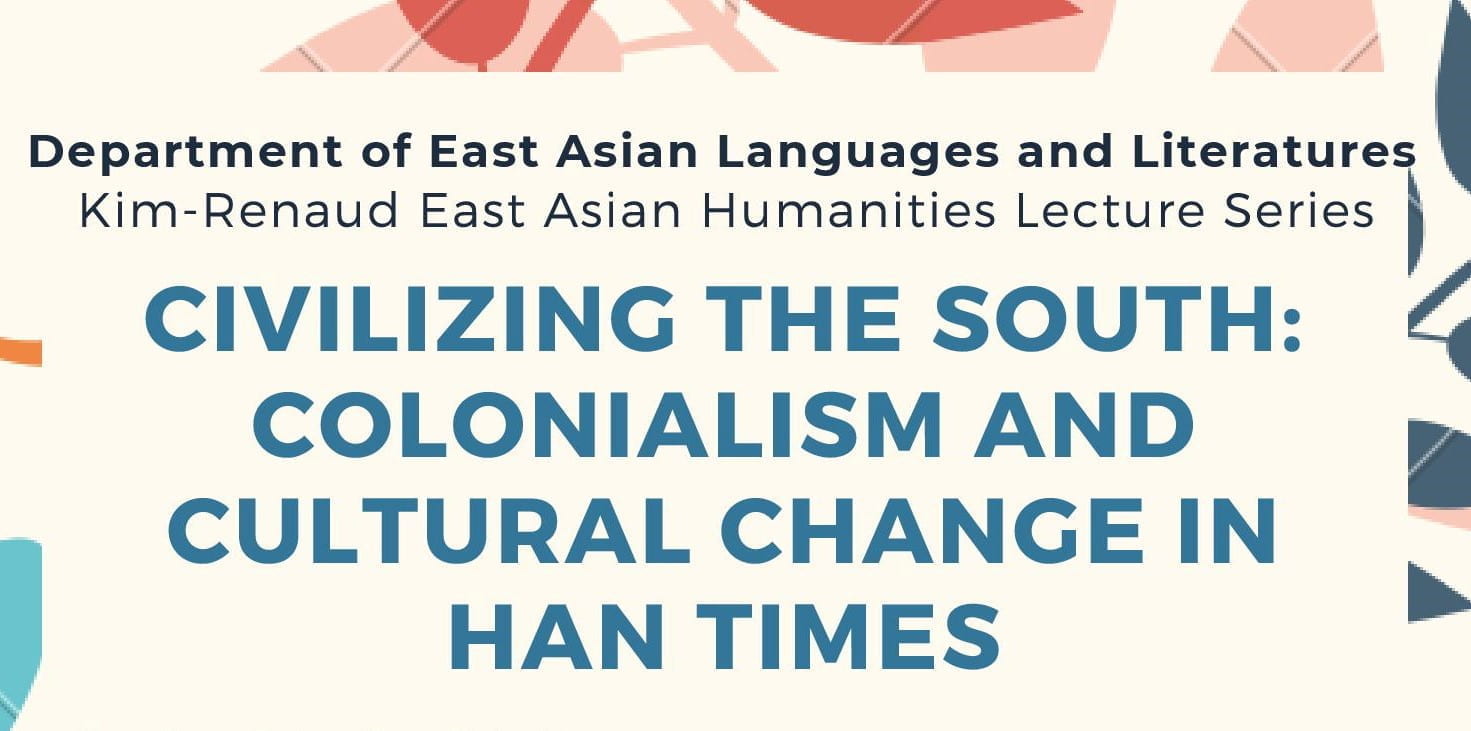

“Kim-Renaud EA Humanities Lecture Series: Civilizing the South: Colonialism and Cultural Changes in Han Times”

Event Description
Empires and their magisterial roles in history have long sparked the imaginations of scholars, artists, and writers. European legacies have impressed upon us the deep significance of Ancient Rome and its imperial influences throughout the ages and throughout the Western world. Most of us know of faraway places along the northern frontier of the Roman world, such as London, Cologne, and Paris, and we also have a sense of the diversity of the region and how different the cultures that inhabited it might have been from their imperialistic Roman neighbors to the South. But when it comes to the faraway, frontier regions of the Han empire, we draw a blank: who were the peoples of the northern and southern frontiers on the East Asian mainland, and what were their cultures like in comparison to those from the ancient Central States regions around the Yellow River regions? What did the colonial cities and outposts along the borders look like, and how did they differ from each other and the great cities, including the capital, closer to the center of the empire? Was everyday life changed significantly for peoples living in the outer regions of early empires, or did the penetration and transformation of Sinitic languages and cultures in these outer regions occur on a much larger time-scale than the Han? Prof. Brindley’s talk addresses these questions through an inquiry into the civilizing missions along the ancient southern frontier. It revisits issues concerning imperial reach and colonialism, and sheds light on what we can know about Han control and the limited extent of cultural change in this period.
Speaker
Professor Erica Fox Brindley
Professor of Asian Studies
Pennsylvania State University
Date & Time
Friday, February 28th, 2020
3:30 PM-5:30 PM
Location
Rome Hall Room 459
The George Washington University
801 22nd Street NW, Washington, DC 20052
Note: This event is open to the public and on the record.
Speaker

Professor Erica Fox Brindley
I am an intellectual and cultural historian of early China (500 BC to 200 CE) interested in the development of premodern East Asia, especially a region I (and collaborators) call SEAMZ (the Southeast Asian Maritime Zone). My first three monographs concern mostly ancient Chinese thought and intellectual history. They are titled Individualism in Early China: Human Agency and the Self in Thought and Politics (University of Hawaii Press, 2010); Music, Cosmology, and the Politics of Harmony in Early China (State University of New York Press, 2012); and Ancient China and the Yue: Perceptions and Identities on the Southern Frontier, c.400 BCE – 50 CE (Cambridge University Press, 2015). Currently, I’m working on a dedicated study of an ancient intellectual school called the Mohists, which came together as quasi-military, religious groups that trained men in technical sciences, disputation, and ethics. I’m interested in their perceived project of standardizing, organizing, and regulating knowledge (which I refer to as the “mass production of knowledge”) and how it affected practices of knowledge and science in East Asia. Another aspect of my current work involves rethinking the networked relationships that connected much of the southeastern parts of continental Eurasia (specifically, “China” south of the Yangzi River) to areas in Southeast Asia. Collaborators and I are fostering interdisciplinary discussions to better understand how large portions of this zone got incorporated over the millennia into the Chinese realm. As the co-editor with Rowan Flad (archaeology, Harvard University) on a new, 5-year publication series called “Cambridge Elements,” Ancient East Asia (published by Cambridge University Press), I hope to bring together the writing of established experts in the disciplines of history, literature, archaeology, and linguistics to provide new, multi-disciplinary, and cutting-edge research on the global history of this major part of the ancient world.

